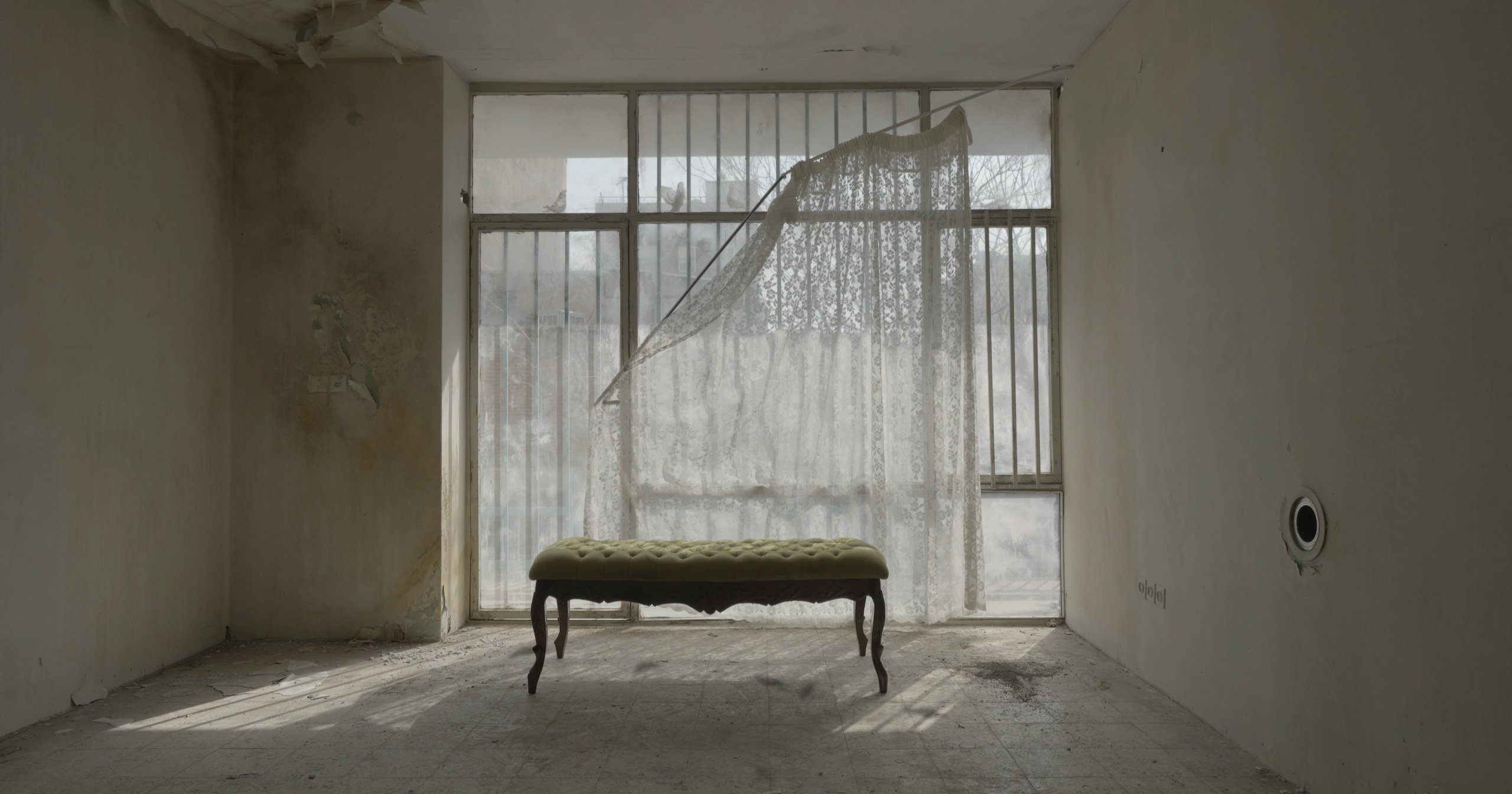Past Present Continuous
.
VERDICT: Acclaimed artists and filmmakers Morteza Ahmadvand and Firouzeh Khosrovani (‘Radiograph of a Family’) pool their talents in ‘Past Present Continuous’, an emotionally-charged yet formally distanced creative documentary that combines experiences of Iranians in exile from their country.
One of Iran’s best documakers, Firouzeh Khosrovani, has worked closely with autobiographical content in films like her remarkable, multi-award-winning Radiograph of a Family from 2020, which told the extraordinary story of her parents living in Tehran through interesting times. The new film Past Present Continuous, in which she teams with top multi-media artist Morteza Ahmadvand, bears notable similarities to its predecessor, for instance, its one-apartment setting. But the theme — the sorrow of exile — tends to be overstated, making the film less surprising and engaging. Its bow in Venice’s Giornate degli Autori should herald more fest play.
The Islamic revolution of 1979 had a shock effect on lran, changing civil society overnight and spurring many critics of the new regime, who feared for their life and liberty, to immigrate to the West. In Past Present Continuous, the unseen 20-year-old protagonist Maryam has “done nothing” but align herself with a movement – and she has seen friends and fellow students jailed or executed for less.
Working within the strict confines of a middle-class home in Tehran, the filmmakers weave what might be called a “typical” story of a family torn apart by the revolution, using sophisticated visual effects, split screens, an offscreen narrator and recurring symbolic images. Yet despite the distanced feeling these devices convey, the viewer can feel the anguish and loneliness of Maryam, the unseen character at the center of an incredible attempt to be in two places at once.
Maryam lives and teaches in the U.S.; in fact she gets her American citizenship along with hundreds of other candidates in a startling scene created out of archive footage. But in all the years since her parents paid to have her smuggled into Turkey across the mountains, in the middle of a herd of sheep, they have only been able to get a visa to meet each other once. Now Maryam has convinced the couple to set up an army of cameras around the house and garden, so she has constant access to the old folks and what they are doing. Basically she spies on them day and night, with the excuse that she is making sure the doors are locked, the gas off, their meds taken on time. It actually looks more like the surveillance in a maximum security prison, and it doesn’t solve Maryam’s problem. Her anxiety spikes when the Internet is blocked in Iran, as often happens when protest marches need to be kept hidden from the world.
Ahmadvand and Khosrovani describe with great conviction the pain of separation from families and the obsessive longing of those who left the country, only to discover later it was a permanent parting. They can never go back. Recurrent images of a white dove beating its wings in overlaid images visually renders the idea of migration. The poetic interludes are heavy with symbolism that will appeal to some viewers more than others.
The film is beautifully shot by D.P. Mohamad Hadadi, who places a fixed camera high on the living room wall to give Maryam the main image of her parents lives as they shuffle (and in one scene, dance) around the apartment. Since there is no sound of them talking, we don’t know how much their solitude weighs on them. But it certainly weighs on their daughter. Christophe Rezai’s wistful music score underlines her nostalgia for the home she grew up in – a house that literally speaks to her across time and space, in her memory and dreams.
Directors, screenplay: Morteza Ahmadvand, Firouzeh Khosrovani
Producers: Firouzeh Khosrovani, Fabien Greenberg, Bard Kjoge Ronning, Andre Segre, Giulia Campagna
Cinematography: Mohamad Hadadi
Editing: Solmaz Effekhari
Music: Christophe Rezai
Sound: Ensieh Maleki
Production companies: Fifi Films, Antipode Films, Zalab Film in association with Rai Cinema
World Sales: Taskovski Films
Venue: Venice Film Festival (Giornate degli Autori)
In Farsi
80 minutes

